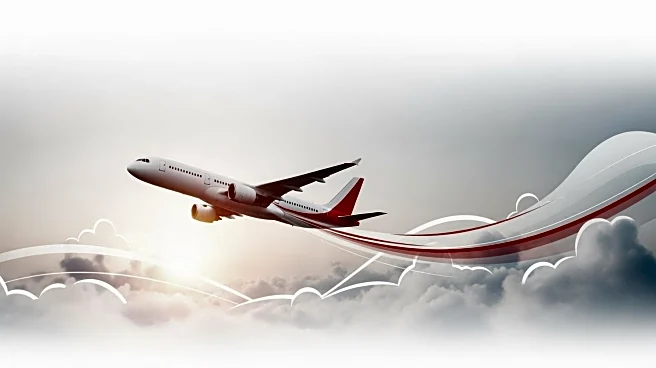What is the story about?
What's Happening?
The General Services Administration (GSA) has been actively promoting its OneGov initiative, which involves agreements with commercial tech companies aimed at saving money and modernizing government operations. These agreements, totaling 13 so far, are advertised as groundbreaking contracts that will revolutionize government procurement processes. The GSA claims that these deals will save multiple billions of dollars, with specific agreements like the Microsoft deal promising up to $3.1 billion in savings. Discounts offered in these agreements range from 50% to 90%, depending on the company involved. However, there is skepticism regarding the actual savings, as the GSA often uses terms like 'up to' in its announcements, suggesting that the discounts may not be as widespread as advertised.
Why It's Important?
The OneGov initiative is significant as it represents a major effort by the GSA to streamline government procurement and reduce costs through strategic partnerships with tech companies. If successful, these agreements could lead to substantial savings for government agencies, allowing for more efficient use of taxpayer dollars. However, skepticism about the actual savings and potential vendor lock-in raises concerns about the long-term impact of these deals. Critics argue that the promised savings may not materialize, and the short-term nature of the agreements could lead to increased costs once they expire. Additionally, the reliance on a limited number of tech companies could reduce competition and innovation in government procurement.
What's Next?
As the OneGov agreements progress, stakeholders will be closely monitoring the actual savings and efficiency gains achieved. The GSA's ability to provide transparency and respond to requests for contract details will be crucial in addressing skepticism. The expiration of these agreements in 2027 poses questions about future procurement strategies and the potential for vendor lock-in. Government agencies and tech companies involved will need to evaluate the long-term benefits and challenges of these partnerships. The GSA's approach to negotiating directly with manufacturers rather than through resellers will also be scrutinized for its effectiveness in achieving cost savings.
Beyond the Headlines
The OneGov initiative highlights broader issues in government procurement, such as the balance between cost savings and maintaining competition. The potential for vendor lock-in raises ethical concerns about the influence of major tech companies on government operations. Additionally, the initiative reflects a shift towards direct contracting with manufacturers, which could impact the role of value-added resellers in the industry. The long-term implications of these agreements will depend on the GSA's ability to navigate these challenges and ensure that the promised savings are realized without compromising competition and innovation.















